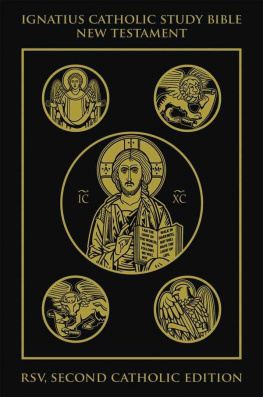JOB THE IGNATIUS CATHOLIC STUDY BIBLE REVISED STANDARD VERSION SECOND CATHOLIC EDITION
JOB
With Introduction, Commentary, and Notes by Scott Hahn and Curtis Mitch and with Study Questions by Dennis Walters IGNATIUS PRESS SAN FRANCISCO Published with ecclesiastical approval Original RSV Bible text:
Nihil Obstat : Thomas Hanlon, S.T.L., L.S.S., Ph.L.
Imprimatur : +Peter W. Bertholome, D.D.
Bishop of Saint Cloud, Minnesota May 11, 1966 Second Catholic Edition approved under the same imprimatur by the
Secretariat for Doctrine and Pastoral Practices
National Conference of Catholic Bishops
February 29, 2000 Introduction, commentaries and notes:
Nihil obstat : Rev. John S. Kselman, S.S.
Imprimatur : +Most Reverend Salvatore Cordileone
Archbishop of San Francisco
February 21, 2014 The nihil obstat and imprimatur are official declarations that a book or pamphlet is free of
doctrinal or moral error. No implication is contained therein that those who have granted the
nihil obstat and imprimatur agree with the contents, opinions, or statements expressed. Second Catholic Edition approved by the
National Council of the Churches of Christ in the USA The Scripture contained herein is adapted from the Revised Standard Version of the Bible, Catholic Edition, copyrighted 1965 and 1966 by the Division of Christian Education of the National Council of the Churches of Christ in the USA, and it is used by permission.
All rights reserved. Cover art from F. B. Schell Engraving, NY Cover design by Riz Boncan Marsella Published by Ignatius Press in 2014 Bible text: Revised Standard Version, Second Catholic Edition
2000 and 2006 by the Division of Christian Education of the
National Council of the Churches of Christ in the United States of America
All rights reserved Introductions, commentaries, notes, headings, and study questions
2014 by Ignatius Press, San Francisco
All rights reserved
ISBN 978-1-58617-834-5 (PB)
ISBN 978-1-68149-077-9 (E)
Printed in the United States of America CONTENTS
INTRODUCTION TO THE IGNATIUS STUDY BIBLE
You are approaching the "word of God". This is the title Christians most commonly give to the Bible, and the expression is rich in meaning. It is also the title given to the Second Person of the Blessed Trinity, God the Son.
For Jesus Christ became flesh for our salvation, and "the name by which he is called is The Word of God" (Rev 19:13; cf. Jn 1:14). The word of God is Scripture. The Word of God is Jesus. This close association between God's written word and his eternal Word is intentional and has been the custom of the Church since the first generation. "All Sacred Scripture is but one book, and this one book is Christ, 'because all divine Scripture speaks of Christ, and all divine Scripture is fulfilled in Christ'" (CCC 134).
This does not mean that the Scriptures are divine in the same way that Jesus is divine. They are, rather, divinely inspired and, as such, are unique in world literature, just as the Incarnation of the eternal Word is unique in human history. Yet we can say that the inspired word resembles the incarnate Word in several important ways. Jesus Christ is the Word of God incarnate. In his humanity, he is like us in all things, except for sin. As a work of man, the Bible is like any other book, except without error.
Both Christ and Scripture, says the Second Vatican Council, are given "for the sake of our salvation" ( Dei Verbum 11), and both give us God's definitive revelation of himself. We cannot, therefore, conceive of one without the other: the Bible without Jesus, or Jesus without the Bible. Each is the interpretive key to the other. And because Christ is the subject of all the Scriptures, St. Jerome insists, "Ignorance of the Scriptures is ignorance of Christ" (CCC 133). When we approach the Bible, then, we approach Jesus, the Word of God; and in order to encounter Jesus, we must approach him in a prayerful study of the inspired word of God, the Sacred Scriptures.
Inspiration and Inerrancy The Catholic Church makes mighty claims for the Bible, and our acceptance of those claims is essential if we are to read the Scriptures and apply them to our lives as the Church intends. So it is not enough merely to nod at words like "inspired", "unique", or "inerrant". We have to understand what the Church means by these terms, and we have to make that understanding our own. After all, what we believe about the Bible will inevitably influence the way we read the Bible. The way we read the Bible, in turn, will determine what we "get out" of its sacred pages. These principles hold true no matter what we read: a news report, a search warrant, an advertisement, a paycheck, a doctor's prescription, an eviction notice.
How (or whether) we read these things depends largely upon our preconceived notions about the reliability and authority of their sourcesand the potential they have for affecting our lives. In some cases, to misunderstand a document's authority can lead to dire consequences. In others, it can keep us from enjoying rewards that are rightfully ours. In the case of the Bible, both the rewards and the consequences involved take on an ultimate value. What does the Church mean, then, when she affirms the words of St. Paul: "All Scripture is inspired by God" (2 Tim 3:16)? Since the term "inspired" in this passage could be translated "God-breathed", it follows that God breathed forth his word in the Scriptures as you and I breathe forth air when we speak.
This means that God is the primary author of the Bible. He certainly employed human authors in this task as well, but he did not merely assist them while they wrote or subsequently approve what they had written. God the Holy Spirit is the principal author of Scripture, while the human writers are instrumental authors. These human authors freely wrote everything, and only those things, that God wanted: the word of God in the very words of God. This miracle of dual authorship extends to the whole of Scripture, and to every one of its parts, so that whatever the human authors affirm, God likewise affirms through their words. The principle of biblical inerrancy follows logically from this principle of divine authorship.
After all, God cannot lie, and he cannot make mistakes. Since the Bible is divinely inspired, it must be without error in everything that its divine and human authors affirm to be true. This means that biblical inerrancy is a mystery even broader in scope than infallibility, which guarantees for us that the Church will always teach the truth concerning faith and morals. Of course the mantle of inerrancy likewise covers faith and morals, but it extends even farther to ensure that all the facts and events of salvation history are accurately presented for us in the Scriptures. Inerrancy is our guarantee that the words and deeds of God found in the Bible are unified and true, declaring with one voice the wonders of his saving love. The guarantee of inerrancy does not mean, however, that the Bible is an all-purpose encyclopedia of information covering every field of study.
The Bible is not, for example, a textbook in the empirical sciences, and it should not be treated as one. When biblical authors relate facts of the natural order, we can be sure they are speaking in a purely descriptive and "phenomenological" way, according to the way things appeared to their senses. Biblical Authority Implicit in these doctrines is God's desire to make himself known to the world and to enter a loving relationship with every man, woman, and child he has created. God gave us the Scriptures not just to inform or motivate us; more than anything he wants to save us. This higher purpose underlies every page of the Bible, indeed every word of it. In order to reveal himself, God used what theologians call "accommodation".
Sometimes the Lord stoops down to communicate by "condescension"that is, he speaks as humans speak, as if he had the same passions and weakness that we do (for example, God says he was "sorry" that he made man in Genesis 6:6). Other times he communicates by "elevation"that is, by endowing human words with divine power (for example, through the prophets). The numerous examples of divine accommodation in the Bible are an expression of God's wise and fatherly ways. For a sensitive father can speak with his children either by condescension, as in baby talk, or by elevation, by bringing a child's understanding up to a more mature level. God's word is thus saving, fatherly, and personal. Because it speaks directly to us, we must never be indifferent to its content; after all, the word of God is at once the object, cause, and support of our faith.
Next page
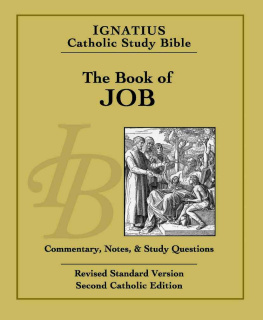
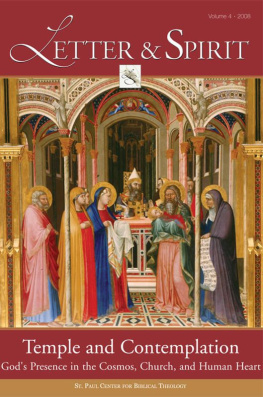
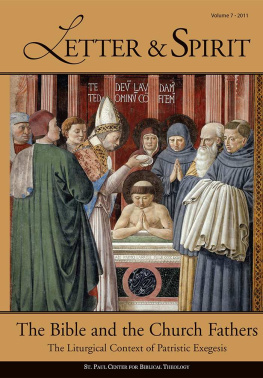
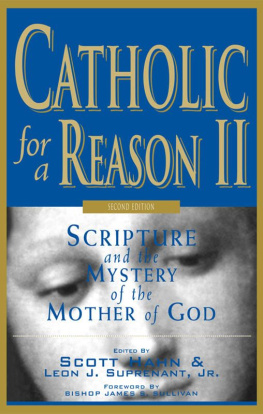
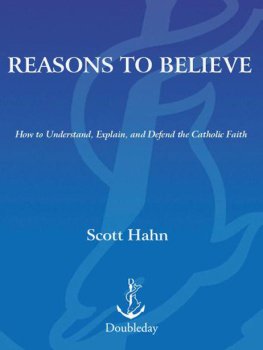
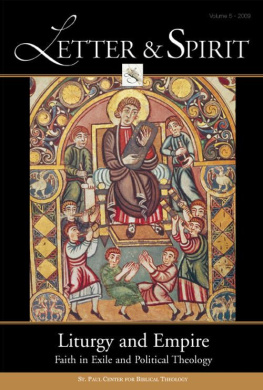
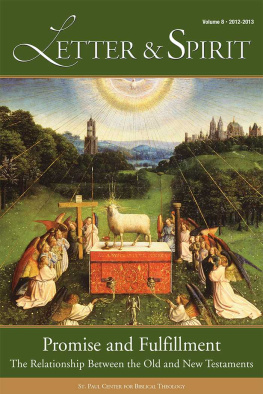
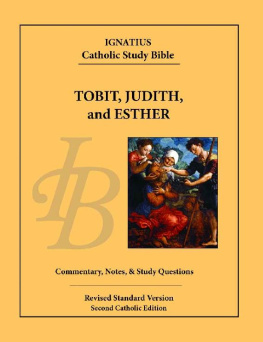

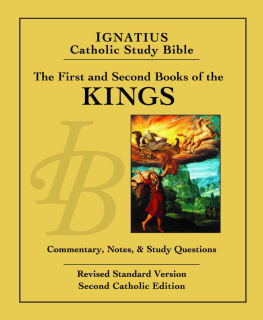
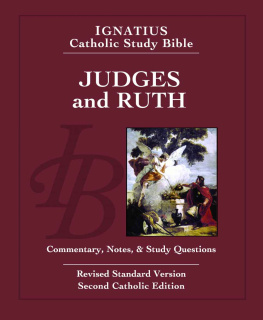
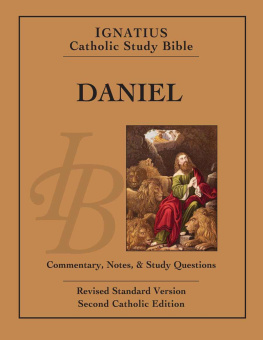
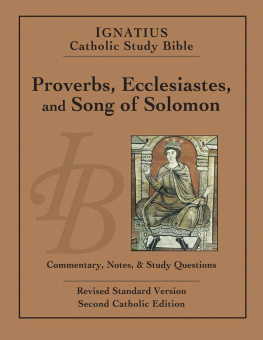
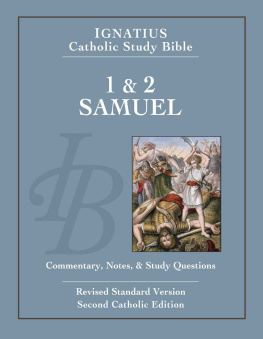
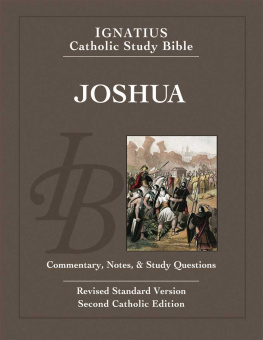
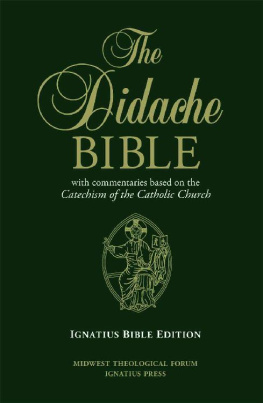
![Scott Hahn [Inconnu(e)] - Scripture Matters: Essays on Reading the Bible From the Heart of the Church](/uploads/posts/book/134760/thumbs/scott-hahn-inconnu-e-scripture-matters-essays.jpg)
![Scott Hahn [Inconnu(e)] - Letter and Spirit: From Written Text to Living Word in the Liturgy](/uploads/posts/book/134755/thumbs/scott-hahn-inconnu-e-letter-and-spirit-from.jpg)
